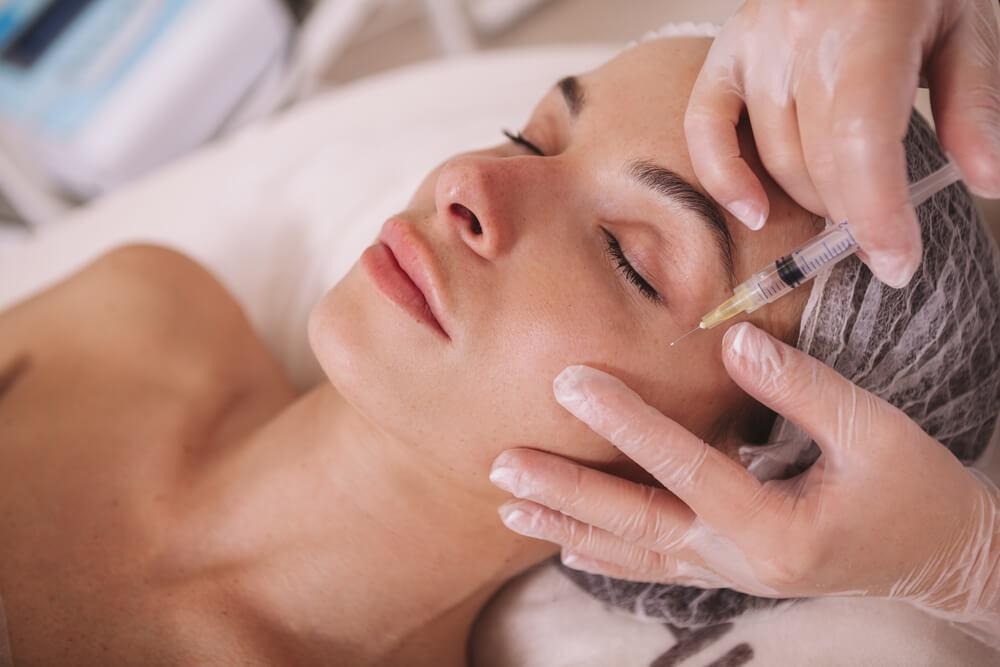Navigating the vast array of lubricants available in the market can be overwhelming, especially with numerous suggestions from various non-professional sources. Moreover, the stakes are high as many lubricants contain elements that could be harmful or irritate the skin. Fear not, for this article will shed light on this topic, guided by the expertise of a seasoned pelvic floor physical therapist. We’ll delve into the essentials of selecting the right lubricant, tailored for women and anyone with vaginal anatomy.
Why Use Lubricant During Sex or Masturbation?
The real query is, ‘why shouldn’t you?’ Some women express feelings of embarrassment about resorting to lubrication due to vaginal dryness, rooted in misconceptions about its causes. However, there’s no shame in using lubricants. Vaginal dryness is a common experience that can occur at any stage or age.
Research spanning multiple countries revealed that 5-19.7% of women aged 18-65 years experience vaginal dryness. The Mayo Clinic lists various potential causes for this condition: from breastfeeding, childbirth, and specific cancer treatments, to certain medical disorders, medications that alter estrogen levels like birth control, and even some allergy drugs. Menopause and perimenopause also contribute. Therefore, it’s entirely normal to occasionally feel the need for added moisture, and there’s no reason for embarrassment.
Even for those without persistent vaginal dryness, lubricants can enhance the overall experience by reducing friction. If you’re resuming intimacy postpartum, when sensitivity might be heightened, lubricants can provide added comfort and alleviate any apprehensions. Even if you’ve never used it in the past, keeping a bottle nearby is advisable. Lubricants can also assist with the use of vaginal dilators, wands, or weights. Essentially, whenever the topic of lubricants arises, embracing them is often the best response.
A research review conducted by the World Health Organization in July 2022 highlighted the following advantages of using lubricants:
- Lubricants can enhance sexual health and overall well-being when used during intimate activities.
- They are especially beneficial for alleviating vaginal dryness linked to menopause and dyspareunia (pain during sexual intercourse or vaginal penetration).
- Lubricants contribute to improved sexual satisfaction, pleasure, and functionality across all genders, irrespective of specific health challenges.
- To minimize the risk of condom rupture and the transmission of sexually transmitted infections, the use of lubricants is advocated.
Why Does It Matter Which Lube I Use?
A wide array of companies produce personal lubricants, with not all of them being primarily focused on women’s health. It’s essential to steer clear of ‘novelty’ lubricants that lack comprehensive and informative labeling commonly found on personal health products. If the product’s composition or type is ambiguous, it’s best not to apply it to or inside your body.
Lubricants can be categorized into three main types: water-based, silicone-based, and oil-based. Each type has its specific recommended uses.
Water-Based Lube
Water-based lubricants are often the go-to choice for many individuals due to their versatility and compatibility in diverse scenarios. They are commonly found, pocket-friendly, and can be used safely with all forms of birth control or barrier methods for protection. An added advantage of these lubricants is their potential to provide hydration to the tissues over time.
Water-based lubricants are particularly suitable for:
- Both penetrative and non-penetrative acts, whether condoms are used or not
- Accompanying silicone-based sex toys
- Pairing with silicone dilators and vaginal weights
- Those with sensitive vulvas or vaginas prone to frequent irritations
However, there are some downsides:
- They may become tacky after some time
- Frequent reapplication might be necessary
- They are more inclined to include preservatives and potential irritants.
Silicone-Based Lube
Silicone-based lubricants stand out for their longevity during use, eliminating the frequent need for reapplication. However, it’s crucial to note that they should never be paired with silicone items. This includes many modern sex toys, dilators, and vaginal weights, as the lubricant can degrade the silicone material.
Silicone-based lubricants are ideal for:
- Both penetrative and non-penetrative acts, irrespective of condom use
- Non-silicone toys, dilators, or vaginal weights, such as those made of plastic or glass
- Activities in watery environments like showers or baths
However, they come with a few drawbacks:
- Incompatibility with silicone-based products
- Potential to leave marks on fabrics
- A more involved cleanup process, though standard soap and water can handle it.
Oil-Based Lube
Oil-based lubricants, often derived from plant oils, are known for their extended performance, similar to silicone-based ones. However, caution is necessary when using them with condoms, as they can weaken the latex and lead to potential breakage. Therefore, if condoms are involved, it’s advisable to opt for water or silicone-based lubricants instead.
Benefits of oil-based lubes include:
- Suitable for penetrative sex without the use of condoms
- Compatibility with non-latex toys, dilators, or vaginal weights, such as those made of glass
- A preferable option for those with sensitive skin who may find water-based lubes unsatisfactory
- An appealing choice for individuals seeking a completely organic solution
However, they have some downsides:
- Incompatibility with latex products, including condoms
- Potential to leave residue on fabrics, making them challenging to clean
- A slightly more complicated post-use cleanup process.
What Else Should I Consider in My Lube?
pH Balance
The natural pH of a vagina leans towards the acidic side, usually ranging from 3.5-4.5. It’s worth noting, however, that the pH fluctuates during the menstrual cycle, and with diminished estrogen levels, it can shift towards a less acidic range (potentially reaching a pH of 6-7). As a result, for those undergoing phases like lactation or menopause, a lubricant with a more acidic pH (a lower number) might induce sensations of burning or stinging.
The World Health Organization suggests opting for a lubricant that maintains a pH level of 4.5. Upon evaluating several mainstream brands, it’s evident that not all lubricants meet this standard, though many hover close to it.
Osmolality Factor
Despite the complex term, osmolality simply refers to the balance between molecular components and water in a lubricant. A lube that is dense in ingredients and low in water tends to absorb water from the body’s cells. Studies indicate that lubes with a high osmolality can result in dehydration, cellular damage, irritation to delicate vaginal tissues, and a heightened susceptibility to sexually transmitted diseases.
The World Health Organization advises selecting a lubricant with osmolality below 1200 mOsm/kg. It’s worth noting that some lubricants, especially renowned ones like the original versions of K-Y Jelly and Astroglide, possess osmolality significantly above this threshold.
Glycerin Factor
Steer clear of lubricants containing glycerin. Its presence can instigate yeast proliferation and it’s known for its high osmolality, which can be irritating.
Additional Components
As a general guideline, it’s wise to choose lubes devoid of certain additives, such as:
- Parabens
- Overpowering fragrances
- Heat-inducing agents
- Flavorings
These additives might irritate the vaginal and vulvar regions, so always review the ingredient list prior to purchase.
Which Lubes Are Optimal for Women?
The market is flooded with lubricants tailored for women and those with vaginal anatomy. However, the choices narrow down significantly when you filter out brands containing potential irritants and then delve into the specifics of pH values and osmolality (though it’s worth noting this information isn’t always readily available).
If you’re exploring lubricants for the first time, or seeking a more skin-friendly alternative to protect the delicate vaginal environment, the following suggestions are excellent starting points:
Top Water-Based Lubricants for Enjoyment, Pain Relief & Menopause
‘Slippery Stuff’ is among the most advocated water-based lubricants available. It showcases an osmolality of 26 and a pH measure of 6.8.
The offerings from Good Clean Love, including their ‘Almost Naked’ organic, water-based variant, have consistently ranked high due to their pH-friendly compositions and minimal osmolality. Conveniently, their website provides pH and osmolality details for all their lubricants.
Recommended Silicone Lubricants for Enjoyment, Pain Relief & Menopause
The hybrid lubricant from Good Clean Love, merging water and silicone properties, is another commendable choice. It encapsulates the benefits of both lube categories, but it’s essential to note its silicone content may render it unsuitable for use with condoms or silicone-based toys.
Other silicone-based lubricants worth exploring are Uberlube and Maude’s Shine. Both exhibit smooth textures and are devoid of parabens, glycerin, and additional flavorings or fragrances. Their aesthetically pleasing pump bottles also make them a discreet addition to your nightstand. (It’s pertinent to remember that pH and osmolality aren’t focal points for silicone lubes since they don’t depend on the same stabilizing ingredients as their water-based counterparts.)
Best Water-Based Lube for Conception Efforts
Pre-Seed’s Fertility Friendly lubricant is designed to bolster the conception process and stands as one of the most extensively researched lubricants in this category. Its pH (ranging from 7.1-7.4) and osmolality (314) are fine-tuned to foster sperm vitality and preserve the vaginal ecosystem.
What to Do When Lube’s Not Enough
While the myriad benefits of lubricants are undeniable, there are instances where even the best lube may not fully address underlying concerns. Whether you’re grappling with persistent vaginal dryness, experiencing discomfort during intimacy, or navigating the complexities of postpartum intimacy, it’s essential to recognize when external assistance is warranted. Seeking professional guidance can provide personalized solutions and deeper insights into your specific situation. Our dedicated team is available for both in-person and virtual consultations, ensuring you’re not alone in your journey to optimal sexual well-being. Reach out today to discover the comprehensive support we offer.



